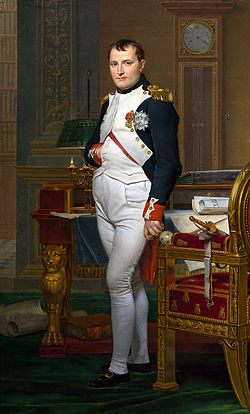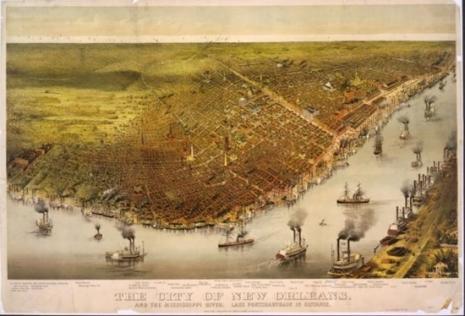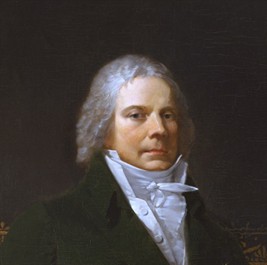
Napoleon Bonaparte, the French geo-political mastermind of the 19th century
President
Washington's treaty with Spain obtained recognition of the 31st
latitude as the southern boundary of the United States. The
U.S. promised to remain north of that line in exchange for being
granted a 'right of deposit' to use Spanish wharfs in New
Orleans.

click here for more
At first glance
these provisions seem modest enough, but they set in motion a
sequence of events that eight years later led to the cession of
Louisiana to the United States. The French foreign minister
Talleyrand was alarmed that Spain should make such concessions,
believing it essential that Spain (which was holding Louisiana in
trust for the French) should maintain forts on the Mississippi in
order to prevent the westward march of Americans who, in his words,
were "devoured by pride, ambition, and cupidity." But
Talleyrand needn't have worried. The Spanish governor in New
Orleans, in outright violation of the treaty signed with President
Washington, turned right around and closed the river to American
trade and commerce and suspended the 'right of deposit.'
The port remained closed until 1804 when Napoleon sold
the French territory of Louisiana to the United States
government.

click here for more on King Charles
In the
intervening years, Spain ignored President Jefferson's appeals for
a new 'right of deposit.' Unbeknownst to Jefferson, Mr.
Talleyrand (right) was the invisible hand in the puppet. When
King Charles IV of Spain returned the land to the French in the
secret Treaty of San Ildefonso, in 1800, Jefferson was kept in the
dark because Napoleon was hatching a scheme to humble her long-time
nemesis, England.
Spain
maintained silence on the issue not because the port was no longer
hers. Because the treaty of retrocession with France had been
struck in secret, both sides were duty-bound to keep silent until
the French flag flew over governor's square in New Orleans.
By then, Napoleon had sealed a deal with Jefferson to sell the
United States all of Louisiana, a move that infuriated the
English.
Related People
Related Events